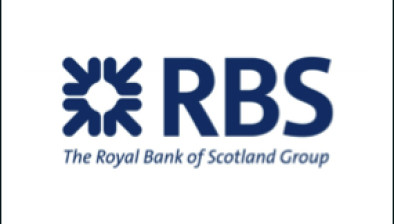RBS: Permanent placements rise for the first time since June
Permanent staff placements rose for the first time in five months in November, to provide a tentative sign of recovery in Scottish labour market conditions, according to the latest Royal Bank of Scotland report on jobs.
Sebastian Burnside, chief economist at RBS
Temporary billings also rose, although the rate of increase eased to a modest pace. At the same time, both permanent and temporary candidate availability deteriorated at marked rates. However, pay pressures softened and were historically subdued.
For the first time since June this year, recruitment consultancies across Scotland signalled an increase in the number of permanent staff placements in November. The uptick was only marginal overall, however, and softer than the series historical average.
The rise in Scotland contrasted with a fall at the UK level, where permanent placements declined for a ninth consecutive month.
Meanwhile, temporary staff billings also rose across Scotland in November, as has been the case in all but one of the past 23 months. That said, the pace of increase eased from October and was only marginal overall.
Nonetheless, growth in Scotland continued to outpace the UK average.
November survey data highlighted a further increase in the demand for permanent staff across Scotland. Permanent vacancy growth accelerated to the fastest for three months and was slightly quicker than that seen for the UK as a whole.
Concurrently, temporary staff vacancies expanded further in November, extending the current sequence of growth to just over ten years. The rate of increase was marked overall, despite easing to the slowest since August 2016.
Latest survey data pointed to softer growth in starting salaries across Scotland. Notably, the rate of inflation was the second-slowest for nearly three years and only moderate.
In line with the trend for permanent pay, average hourly rates for temporary staff increased at a softer pace in November. The rate of wage inflation, though solid, was the slowest for nearly two years and below the series average.
As has been the case in each month since March 2012, permanent candidate availability deteriorated in November.
The rate of decline was unchanged from October and marked overall, outpacing that seen at the UK level for the twenty-second month in a row.
Meanwhile, the supply of temporary candidates in Scotland also declined in November, with the rate of deterioration quickening to the fastest since June.
Sebastian Burnside, chief economist at RBS, said: “Permanent placements rose for the first time since June in November, a positive sign for the Scottish labour market. However, the rate of increase was only marginal, with political uncertainty continuing to weigh heavily on firms’ hiring decisions. Subdued hiring trends were also seen for short-term workers, as temporary billings growth eased to the softest in five months.
“Nevertheless, Scotland outperformed the UK as a whole in November as permanent placements at the national level declined for the ninth consecutive month.
“Meanwhile, labour demand and supply imbalances led to further increases in pay, though overall pay pressures showed signs of softening in November.”









